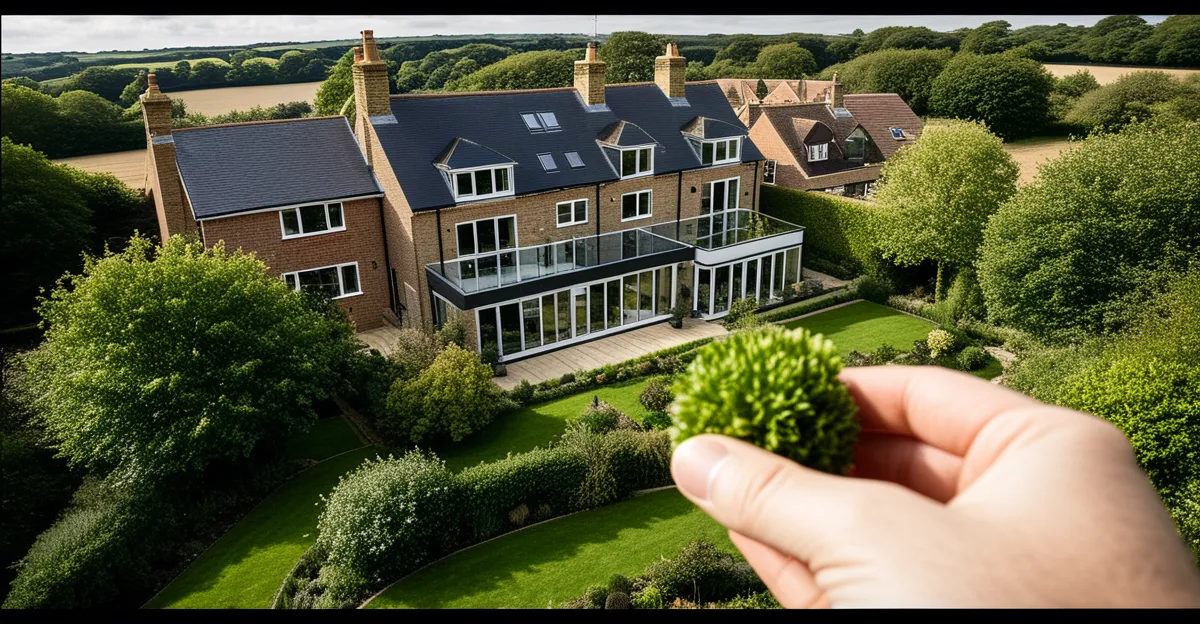The Role of UK Real Estate in Shaping Sustainable Finance
Sustainable finance focuses on allocating capital to projects and assets that deliver positive environmental, social, and governance (ESG) outcomes alongside financial returns. Within this context, UK real estate investments play a pivotal role by enabling sustainable investing through the tangible asset class of property. Real estate represents a significant portion of the UK economy and its environmental footprint, making it a critical lever for advancing sustainability objectives.
The significance of real estate in sustainable finance stems from its direct influence on carbon emissions, resource consumption, and social impact. Buildings consume large amounts of energy and materials, so their design, construction, and operation standards directly affect environmental outcomes. Consequently, UK real estate investments aligned with ESG impact criteria help integrate sustainability principles at every phase—from development and refurbishment to asset management.
In the same genre : What are the tax implications of real estate finance in the UK?
Moreover, the synergy between real estate and sustainable finance is reinforced by the growing demand for green buildings and responsible investment strategies that prioritize long-term value creation. By focusing capital flows on properties with strong ESG profiles, investors can foster innovations such as energy-efficient technologies, green certifications, and sustainable urban development. Therefore, the UK’s sustainable finance landscape is increasingly shaped by real estate projects that demonstrate measurable ESG benefits and contribute meaningfully to national and global sustainability goals.
The Current Sustainable Finance and Real Estate Landscape in the UK
The UK property market increasingly integrates sustainable finance principles, reflecting a strong shift towards environmental responsibility. A growing number of investors now prioritize green investments, emphasizing energy efficiency, reduced carbon footprints, and social value. This trend is evidenced by the widespread adoption of global environmental standards such as BREEAM and EPC ratings, which help benchmark and verify the sustainability of buildings.
Also to see : How Will Emerging Technologies Transform the Future of the UK Real Estate Market?
Sustainable finance in the UK property sector is not only about regulatory compliance but also about market differentiation and long-term asset resilience. For instance, developments certified under green building standards often command higher rents and increased tenant retention, reinforcing the financial advantages of sustainable investing. This dynamic drives more UK real estate investments to incorporate sustainability considerations intrinsically.
Notable examples in the UK include large-scale urban regeneration projects and zero-carbon developments that exemplify sustainable investing in action. These projects highlight the real estate sector’s leadership in advancing sustainability by integrating renewable energy, sustainable materials, and smart technologies. Such initiatives demonstrate how sustainability trends are setting new benchmarks for responsible property ownership and development across the UK.
Regulatory Frameworks and Government Policies
Government action in the UK is pivotal in steering sustainable finance and UK real estate investments toward better environmental and social outcomes. The UK government policy actively supports sustainable real estate through a range of green regulations and sustainable finance frameworks designed to promote low-carbon and energy-efficient property development. For instance, policies encouraging compliance with energy performance standards and mandating carbon reduction measures ensure that real estate projects contribute meaningfully to national sustainability targets.
Key legislations such as the Minimum Energy Efficiency Standards (MEES) require landlords to meet specific energy performance thresholds, effectively pushing the property sector to prioritize sustainability. These regulations create clear incentives for developers and investors to incorporate sustainable technologies and materials, aligning investment decisions with ESG impact objectives. Additionally, government-backed financial incentives and grants lower the barriers to entry for sustainable investing in the real estate market.
The implications for investors and developers are profound. Adhering to these policies not only ensures regulatory compliance but also enhances asset value and marketability. Properties that meet or exceed green regulations tend to attract more investment interest as they carry lower long-term risks and align with evolving ESG goals. Consequently, the synergy between UK government policy and market actors accelerates the integration of sustainability into real estate financing, bolstering the overall sustainable finance ecosystem.
Real Estate’s Contribution to ESG and Sustainable Investment Goals
UK real estate investments play a vital role in advancing ESG goals by directly shaping environmental and social outcomes within the property sector. Real estate assets contribute significantly to carbon emissions and resource usage, making their sustainability performance critical for meeting broader ESG benchmarks. Consequently, sustainable real estate strategies focus on reducing energy consumption, minimizing waste, and enhancing occupant well-being, thus aligning property portfolios with responsible investment objectives.
Measurement and reporting standards are essential to ensure transparency and accountability in this process. Frameworks such as the Global Real Estate Sustainability Benchmark (GRESB) allow investors to assess ESG impact quantitatively by tracking energy efficiency, carbon footprint, and social factors in their property holdings. This data-driven approach supports more informed decision-making and strengthens the case for sustainable investing within real estate portfolios.
Investor strategies increasingly integrate these ESG metrics to balance financial returns and sustainability commitments. By prioritizing properties with strong environmental credentials and social value, investors not only mitigate risks but also capture growth opportunities in the green economy. This emphasis on impact investing transforms real estate into a powerful vehicle for fostering sustainable development and responding to evolving stakeholder expectations.
Expert Analysis and Future Trends in Sustainable Real Estate Finance
Experts consistently highlight that sustainable finance trends indicate an accelerating integration of ESG criteria into UK real estate investment decisions. This evolution is driven by increased awareness of climate risks and a growing consensus that UK real estate investments must prioritize environmental and social governance to remain viable. As a result, the future of this sector is poised for significant innovation and transformation.
One key insight from industry specialists is that technological advancements will underpin the next wave of sustainable investing. Smart building technologies, renewable energy integration, and data analytics for real-time ESG performance monitoring are set to become standard components of property development and asset management. These innovations enhance transparency and enable more precise measurement of ESG impact. Consequently, investors can make better-informed decisions aligned with sustainable finance objectives.
Looking ahead, the scale and scope of sustainable real estate in the UK are expected to expand rapidly. Analysts predict more widespread adoption of net-zero carbon developments and circular economy principles within the property sector. Additionally, collaboration between public and private sectors will be crucial to unlocking new capital flows dedicated to sustainability. This collective effort will reinforce the role of UK real estate investments as a catalyst for sustainable economic growth.
In summary, expert opinion underscores a future where sustainable finance trends and real estate converge more tightly. This convergence promises not only enhanced environmental stewardship but also improved resilience and long-term value creation within UK property markets. Therefore, embracing innovation and maintaining commitment to ESG priorities will be essential for stakeholders aiming to lead in the sustainable real estate landscape.










